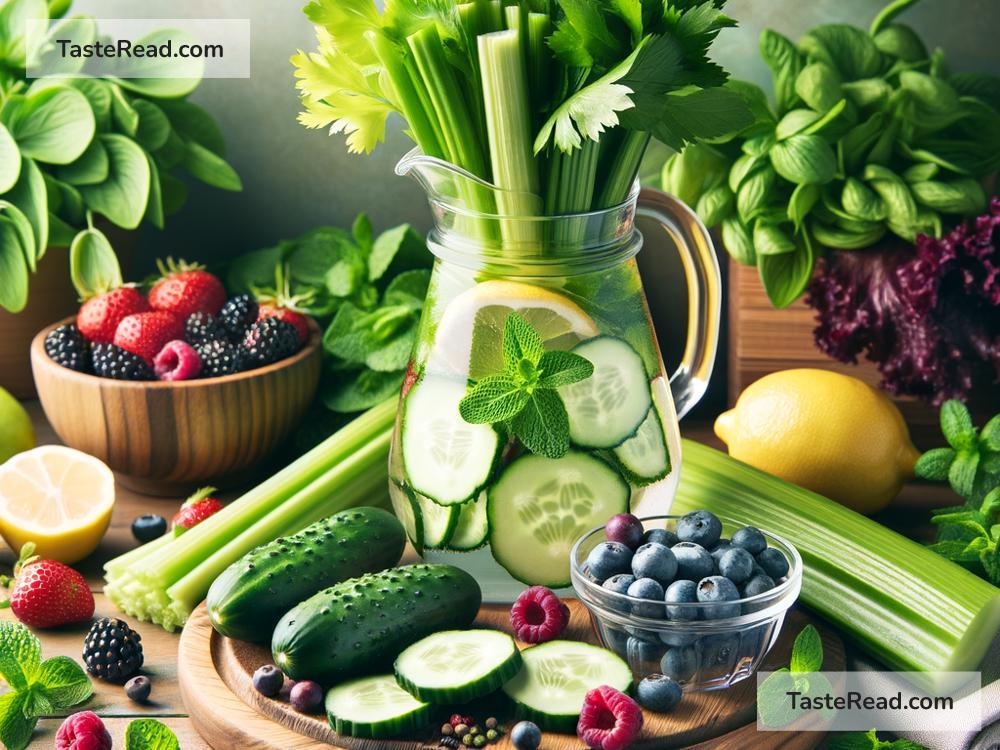10 Foods to Help Reduce Edema Naturally
Edema, often called swelling, happens when there’s extra fluid trapped in your body. It can affect your legs, feet, arms, and even your face. While there are many causes of edema—such as sitting too long, pregnancy, injury, or underlying health conditions—certain foods can help your body reduce swelling. These foods work by improving blood circulation, reducing inflammation, and helping your kidneys and lymphatic system remove excess fluid. The good news is that many of these foods are easy to include in your daily diet. Let’s explore 10 simple and natural foods to help combat edema.
1. Cucumbers
Cucumbers are more than just cool—they’re loaded with water! This hydrating vegetable helps flush out excess salt from your body, which is often a contributor to swelling. Cucumbers also contain antioxidants that reduce inflammation. Try adding sliced cucumbers to your salads, wraps, or as a snack with hummus.
2. Watermelon
Another hydrating powerhouse, watermelon is 92% water. It helps your body get rid of extra water by acting as a natural diuretic. Watermelon also has potassium, which balances sodium in your cells and keeps swelling under control. Enjoy it as a refreshing snack or blend it into smoothies.
3. Pineapple
Pineapple contains bromelain, an enzyme known for its ability to reduce inflammation and swelling. Bromelain helps break down proteins and improve circulation, making it a top choice for managing edema. Fresh pineapple works best, so skip the sugary canned versions when possible.
4. Ginger
Ginger is famous for its anti-inflammatory properties. It can support your body’s blood flow and kidney function, helping flush out fluids that might be causing swelling. Sip on ginger tea, grate it into soups, or use it in stir-fries for a flavorful and health-boosting kick.
5. Celery
Celery is low in calories and high in water content, making it an excellent food for reducing edema. It also contains compounds that act as natural diuretics, promoting urine production and removing excess fluids. You can snack on celery sticks with peanut butter or chop it into soups and salads.
6. Bananas
Potassium-rich foods like bananas are essential for balancing fluid levels in your body. Too much sodium can cause your body to retain water, leading to swelling. Potassium helps counteract this effect by flushing out sodium and promoting proper kidney function. Have a banana as a quick snack or blend it into smoothies.
7. Leafy Greens
Spinach, kale, and other leafy greens are rich in magnesium and potassium, two nutrients that help reduce swelling. Magnesium relaxes your blood vessels and improves blood flow, while potassium helps your kidneys get rid of excess fluid. Add leafy greens to your salads, soups, or smoothies for long-term benefits.
8. Avocados
Avocados are another potassium-rich food packed with heart-healthy fats. They help balance fluids in the body while reducing inflammation. Try adding avocado slices to whole-grain toast, salads, or tacos to enjoy its creamy texture and health benefits.
9. Tomatoes
Tomatoes contain lycopene, an antioxidant that fights inflammation and improves circulation. Their high water content also helps with hydration and removing excess fluids. Enjoy tomatoes raw in salads, cooked into sauces, or blended into soups for a burst of flavor and nutrients.
10. Parsley
Often overlooked, parsley is a secret weapon for reducing edema. It acts as a natural diuretic, promoting urination and preventing fluid buildup in the body. Sprinkle fresh parsley over your meals or blend it into pestos for a tasty way to keep swelling at bay.
Bonus Tips for Reducing Edema
In addition to eating these foods, there are other lifestyle changes that can complement your diet and help reduce swelling:
– Stay Hydrated: Drinking enough water prevents your body from holding onto extra fluids.
– Limit Salt: Avoid highly processed foods and fast food, as these often contain high levels of sodium.
– Move Around: Staying active and avoiding sitting for too long helps blood circulation.
– Elevate Your Legs: If swelling occurs in your legs or feet, raising them above heart level can reduce fluid buildup.
When to See a Doctor
While these foods can help with temporary swelling caused by lifestyle habits or minor health issues, persistent edema may be a sign of a more serious condition, such as kidney disease, heart problems, or deep vein thrombosis. If your swelling doesn’t go away or gets worse, it’s important to consult a doctor for proper evaluation and treatment.
Wrapping It Up
Edema can be uncomfortable, but you don’t have to feel helpless. By including hydrating, anti-inflammatory, and potassium-rich foods in your diet, you can reduce swelling naturally. Stock your kitchen with foods like cucumbers, bananas, ginger, and leafy greens to give your body the tools it needs to fight fluid retention. Combine healthy eating with a balanced lifestyle, and you’ll be on your way to feeling better in no time.


